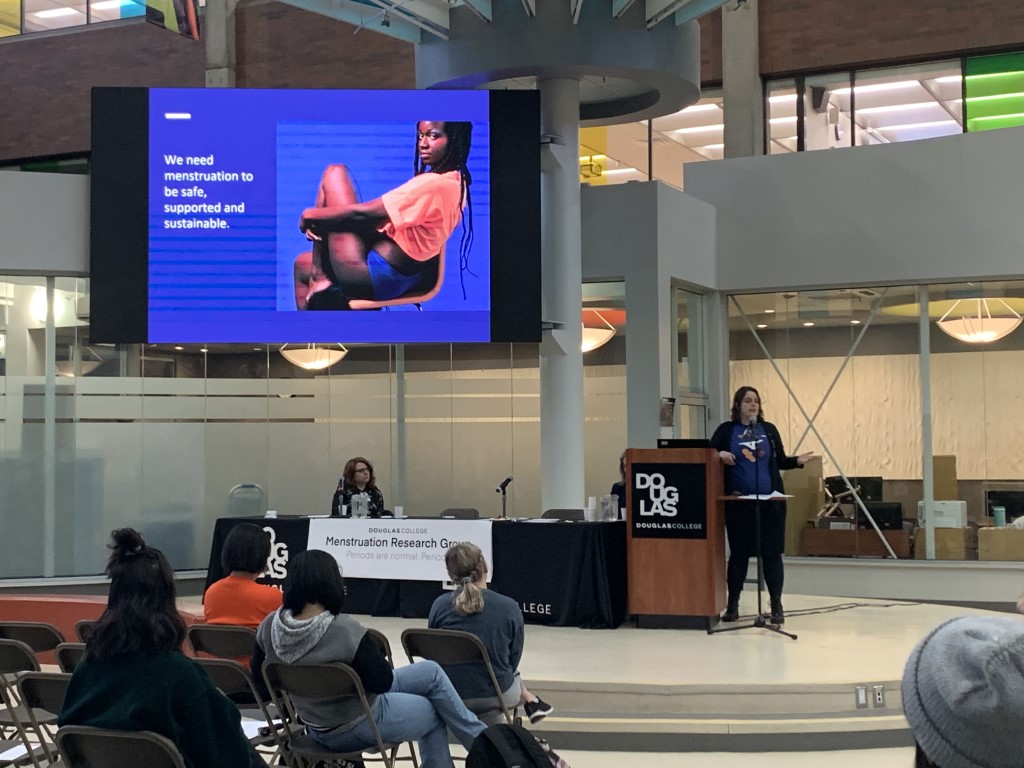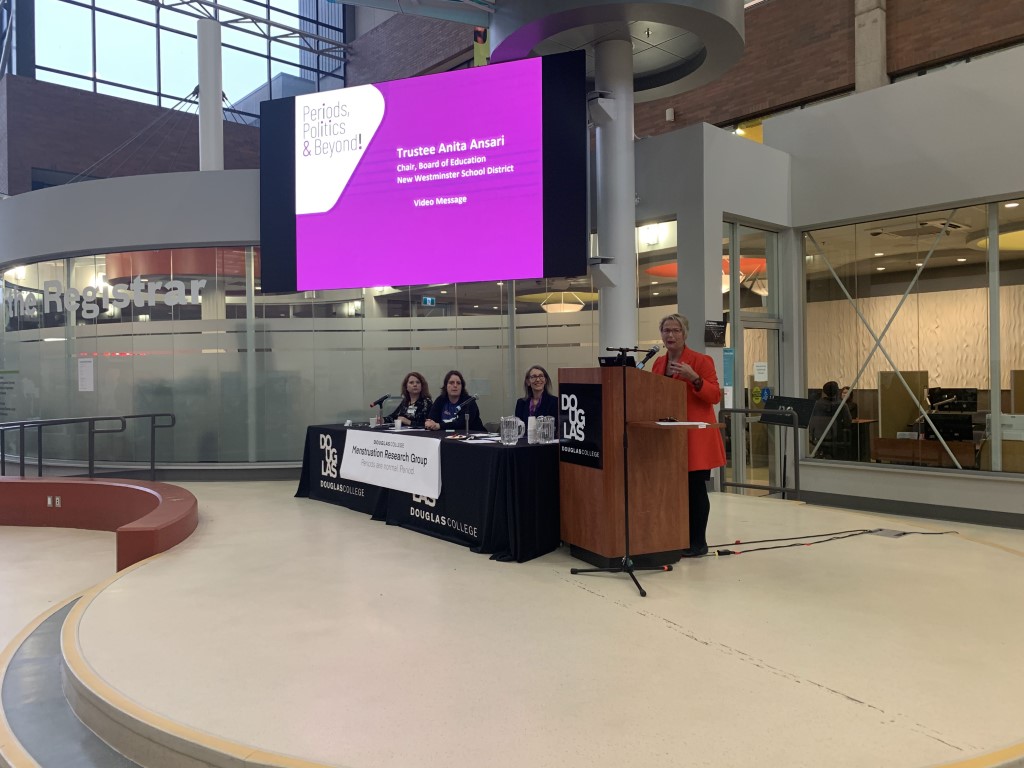
Panel highlights the importance of providing menstrual products
By Ana Laura Brito, Contributor
The first-ever menstruation fair took place last week in the main concourse of Douglas College New West campus.
On March 10, Dr. Selina Tribe and Dr. Lisa Smith teamed up to organize the “Period, Politics, and Beyond!” event which gathered more than 20 special speakers and presenters. Advocates, politicians, educators, students, and product developers came together to discuss period equity.
More than 100 guests joined the Menstrual Research Group to talk about menstrual equity. Trustee Anita Anzari, Chair, Board of Education of New West School District, Judy Darcy (Minister of Mental Health), and Addictions of British Columbia celebrated the initiative of providing free menstrual supplies for those in need. The event was also backed up by the Period Promise Campaign by United Way. Their goal is to take action and end the stigmatization surrounding periods by eliminating “period poverty.”

Tribe highlighted that the conversation about giving young girls access to menstruation products is overdue. She added “students are supposed to go all around campus to find menstrual supplies, and that is not fair. Sanitary products are as necessary as toilet paper in the washrooms,” she said.
Under the slogan “Periods are normal. Period,” the panelists discussed the need for sanitary product justice for women. They talked about the issue of period poverty in BC, and how women should be granted their fundamental health rights. Smith argued that “this is just the tip of the iceberg; the problem is much bigger than we think it is.” Tribe said that at school many girls miss classes, underperform, or even stay at home because of the lack of menstrual supplies. She also pointed out that women in the workplace face the same issue. Low-income families and homeless women may need even more help because they can’t afford period products.
Jane Hope, the owner of LunaPads, emphasized that “menstruation needs to be safe, supported, and sustainable.” Hope pointed out that big companies are still using plastic for tampons and pads, and that eco-friendly materials should be used for women’s intimate hygiene. She said using bamboo pads is not only better for our environment but is gentler on our bodies. More than 20 billion pads and tampons end up in the landfill every year, making reusable pads and menstrual cups the best green option for managing menstruation. There are lots of companies that provide alternative supplies for menstruation, such as Revol Girl and Luna Pads. Both brands offer washable cloth pads and period underwear that can also be used for post-partum.
The final panel was student-led. Zeba Kahn, from Period UBC, Missy Jhonson, Langara College, Chantelle Spicer, BCFed, and Gurpinder Gaidu, DSU, shared a student point of view on the matter. The Student Union has been providing free menstrual supplies for those in need for almost eight years and counting. They understand that menstruation is still a taboo and that we need to normalize periods.


